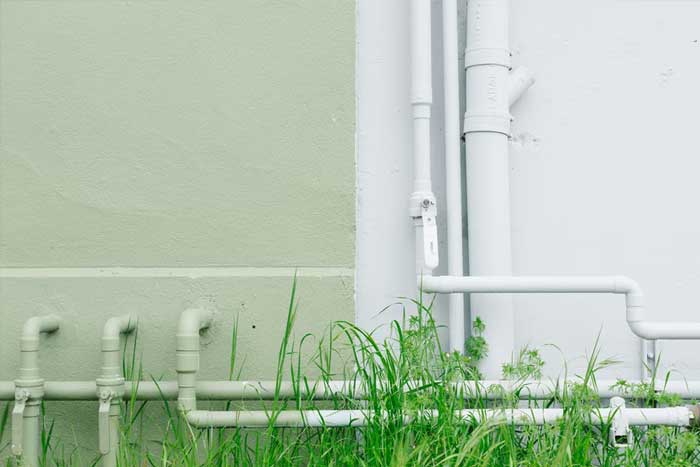Plumbing is an important part of every home although in many cases the pipes are largely invisible. This is because they run behind walls, under floors, and in crevices. While this is aesthetically pleasing, it does make it harder to check the pipes, locate corrosion and leaks, and even know when to replace them.

@kylejglenn
It is advisable to contact a reputable plumber in Sydney to help you work out when to replace your pipes, there are too many variables to be able to provide an exact answer to everyone.
Types Of Pipes
Water needs to pass through pipes in order to control the flow and ensure you have water where it is needed. Over the years different materials have been used to facilitate the transfer of water. Identifying the type of pipe you have can help you assess the age of your pipes and decide if they need replacing yet or not.
Copper
Copper is generally the material of choice today. It has been used for pipes for several decades and a copper pipe will last, on average, 70-80 years. You’ll need to consider how old your home is as this is likely to give you an idea regarding how long the pipes have been doing their job and how close they are to needing repair.
If you’re not sure about the age of your copper pipes then a plumber can inspect them for you and tell you when they should be replaced.
Brass
Brass is made of zinc and copper and is stronger than metal alone. Brass pipes are likely to last between 80-100 years but, because they have traces of leas, they are not generally used. You may find a few pieces of brass piping and connectors in your home. Again, you’ll have to calculate how long they have been there.
Galvanized Stel
Galvanized steel pipes are also designed to last 80-100 years. These are effectively steel which has been dipped into a zinc coating. The result is something that is surprisingly effective at resisting rust.
Galvanized steel pipes were a popular choice in the pre-1960s. However, they are prone to rust, which is why they’re not commonly used anymore.
Cast Iron
Cast iron pipes also last between 80-100 years and have thick walls, enabling them to withstand huge amounts of pressure. But, iron is also very good at rusting, over time these pipes will corrode and start to cause leaks.
PVC Pipes
PVC or plastic water pipes have become very popular in recent years. They are easy to install and won’t corrode. However, they will degrade over time. PVC pipes are designed to last for 25-40 years although newer versions are arriving on the market that can last as long as 70 years.
Polybutylene
These types of pipes are no longer found in homes as they are very flimsy and only last 10-15 years. They have been replaced with more modern materials that are designed to last for many years.
Lead
Lead was once a popular pipe material as it was strong and easy to mold into the right design. However, it has since been discovered that lead exposure leads to a number of serious health issues. As such, lead is no longer used for pipes and, regardless of how long the pipes will last you’ll need to replace them immediately.
Other Variables
Naturally, there are several other factors that will affect how long your pipes last. One of the most obvious is exposure to moisture. All pipes have water running inside them and this will eventually result in corrosion. However, if the pipes are located inside a wall and the wall has a high moisture level then the pipes are likely to corrode faster. This means the pipes could need changing much early than you expected.
It’s a good idea to monitor moisture levels in the walls and if the levels seem to be high or rising check your system for water leaks. This can be leaking water pipes or overflowing gutters. Both can cause the wall to be saturated and corrode your pipes faster than expected.
It’s also worth noting that the level of use will affect the longevity of your pipes. If they are used consistently then they are likely to last longer. Pipes that are left unused are more likely to have corrosion inside them as the water is simply sat still.
Take Further Action Today
The best thing you can do is to get your plumber to inspect your plumbing today. They can help you identify the types of pipe you have and how many years of life they have left. Regular plumbing inspections will also help to ensure you know of problems before they become an issue and can deal with them. That’s preferable to having a flood in your home.
